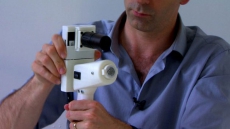There is no association between bra wearing and increased breast cancer risk among post-menopausal women, according to new research.
"There have been some concerns that one of the reasons why breast cancer may be more common in developed countries compared with developing countries is differences in bra-wearing patterns," said Lu Chen, a doctoral student in the department of epidemiology at the University of Washington's School of Public Health.
The study found no evidence that wearing a bra increases a woman's risk of breast cancer.
"The risk was similar no matter how many hours per day women wore a bra, whether they wore a bra with an underwire, or at what age they first began wearing a bra," Chen added.
Study participants were 454 women with invasive ductal carcinoma (IDC) and 590 women with invasive lobular carcinoma (ILC), the two most common subtypes of breast cancer. All women were post-menopausal, aged 55 to 74.
Researchers asked them a series of structured questions to assess lifetime patterns of bra wearing.
Questions included the age at which the study participant started wearing a bra, whether she wore a bra with an underwire, her bra cup size and band size, the number of hours per day and number of days per week she wore a bra, and if her bra-wearing patterns ever changed at different times in her life.
No aspect of wearing a bra was associated with an increased risk for either IDC or ILC, they found.
"The findings provide reassurance to women that wearing a bra does not appear to increase the risk for the most common histological types of post-menopausal breast cancer," the authors noted.
The paper appeared in the journal Cancer Epidemiology, Biomarkers and Prevention.





